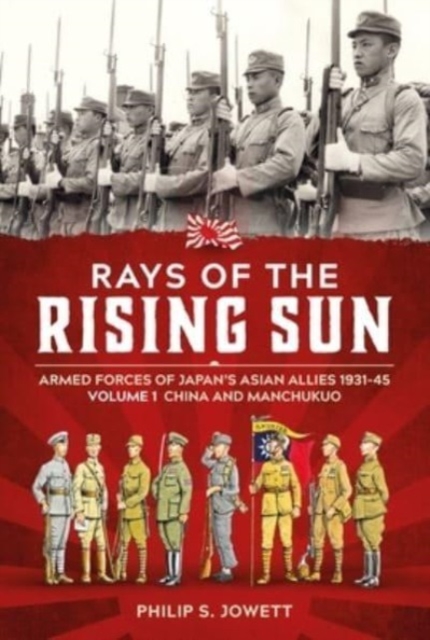Rays of the Rising Sun: Armed Forces of Japan's Asian Allies 1931-45 Volume 1: China and Manchukuo

Rays of the Rising Sun: Armed Forces of Japan's Asian Allies 1931-45 Volume 1: China and Manchukuo
The Chinese 'puppet' soldiers ranged from the well-drilled and trained regular Army of the Last Emperor of China, Pu Yi, who ruled the newly-formed state of Manchukuo, 1932-45, to the irregular Mongol cavalry who served alongside Japanese troops in the 'secret war' waged in the Mongolian hinterlands.
The troops were dismissed as traitors by the Chinese fighting the Japanese, and they were equally despised by the Japanese themselves. The troops were motivated by a range of reasons, from simple survival to a loyalty to their commander. The fact that so many Chinese were willing to fight for the Japanese was embarrassing to all sides, and for this reason has been largely ignored in previous histories of the war in the East. In the first of a three volume series, Philip Jowett tells the story of the Chinese who fought for the Japanese over a 14 year period.
PRP: 215.64 Lei
Acesta este Prețul Recomandat de Producător. Prețul de vânzare al produsului este afișat mai jos.
172.51Lei
172.51Lei
215.64 LeiLivrare in 2-4 saptamani
Descrierea produsului
The Chinese 'puppet' soldiers ranged from the well-drilled and trained regular Army of the Last Emperor of China, Pu Yi, who ruled the newly-formed state of Manchukuo, 1932-45, to the irregular Mongol cavalry who served alongside Japanese troops in the 'secret war' waged in the Mongolian hinterlands.
The troops were dismissed as traitors by the Chinese fighting the Japanese, and they were equally despised by the Japanese themselves. The troops were motivated by a range of reasons, from simple survival to a loyalty to their commander. The fact that so many Chinese were willing to fight for the Japanese was embarrassing to all sides, and for this reason has been largely ignored in previous histories of the war in the East. In the first of a three volume series, Philip Jowett tells the story of the Chinese who fought for the Japanese over a 14 year period.
Detaliile produsului









